|
This year I have decided to read the Bible in a Year with the help of the Bible in One Year App with commentaries in each bit. Please do consider doing something like this too!
Today we the feast of the Naming of Jesus. In my Bible in a year reading today I was given Matthew Chapter 1. During this reading we hear about the genealogy of Jesus- about who he is and where he comes from. What struck me when I was reading was the people on that list. The people in this list include both a prostitute and a murderer. As we consider todays feast of the naming of Jesus it is important to remember what his name means. The name Jesus means ‘The Lord is Salvation’. No one is excluded from this offer of salvation. Not even people who have done the awful things that Jesus’ own ancestors did. Today’s festival gives us hope that no matter how hard things get- no matter what we have done- Jesus is our hope and he will be our salvation. Let us pray. Heavenly Father, we give you thanks that we can call upon the name of Jesus and by his precious blood be saved. We pray that this day we might learn more and more what it means to live in true faith and in accordance with the salvation that Jesus has won for us on the cross. We make this prayer in Jesus name. Amen
0 Comments
Hope!We are not used to waiting these days! The incessant pace and demand of life, especially through electronic media makes us increasingly impatient and intolerant of having to wait. I know that I am not happy if my computer screen does not instantly spring into life on demand!
Advent is about watching and waiting for the coming of God to complete his work but doing so in activity and hope. During the next few weeks, the Church invites us to look towards the hope and expectation of Christmas while we too remember the darkness and struggles of winter. The bible is full of stories of hope and expectation and all of these stories point somewhere- they all point to someone. They point to a little baby in a manger…in a trough for animal food. We are invited to be excited for Christmas… to wait expectantly for Christmas. Yet most at all, as we wait for Christmas, we are invited to hope. Hope is something that we sorely need at this time of year… especially this year. With war once again on the European continent, with rising bills, and high prices… for many this will be an advent without much hope… When we speak about hope we are not speaking about ignoring all of this. Quite the opposite. Someone with hope is someone who seeks change. Someone with hope helps to build a better world. Someone with hope takes care of the people around them. And we see this in the care people have had for strangers and refugees from Ukraine and in those helping at the foodbanks. Even when things seem impossibly dark- Hope is the fire that stirs within human hearts and lights the flame of the future. It is hope that we see in revolutionaries and freedom fighters… it is hope that we see in people seeking justice… it is hope that we see in people wanting change… it is hope that we see in martyrs and in pilgrims… But hope rings most clearly from the heart of a child. Children are impatient… excited… joyful… They want Christmas now! There was once a story of a Lutheran pastor in Germany by the name of Johann Hinrich Wichern who looked after an orphanage. Many in this room will sympathise with this man because every day during advent the children would ask him time and time again… Is it Christmas yet??!! And every day he would say no not yet… So he came up with a plan! He got an old wheel and placed 4 big candles around it and 7 small candles in between each big one… every day he would get a child to light a candle and when they were all lit all the children knew that it was Christmas. This is where we get our modern advent wreath which we still use in Church during advent and with which we lit our first candle tonight. Children are impatient for Christmas and this time of waiting is hard for them. Yet advent is supposed to remind us that in the darkness of this world we are invited to be like children… impatiently waiting with hope… not for presents but for something greater. Not to wait for the Child Jesus but the one who is risen from the dead and coming again. Advent invites us to recognise that even though the world seems bleak and broken at times, God is going to complete the job he started in Bethlehem on that first Christmas and continued in Jesus’ loving death and mighty resurrection at Easter… Advent invites us to the hope that Jesus can be born again in you and in me and that we are called to impatiently wait for him to come again while we make the world a better place with out hope. Let us pray Heavenly Father, we thank you that you that Jesus came to bring us hope. We pray that we might have the hope and the joy of a child as we come to you this advent. Help us to seek hope… to seek Jesus… and in this hopeful expectation to in some small way make the world a better place this winter. We make this prayer in Jesus’ name. Amen. When considering this feast day I came across this wonderful reflection and thought it would be good to share it with you all: "When we are bereft of dear ones, it is a tremendous shock. For a time we are stunned. Not everyone, can feel at once their continuing companionship. We should not for that reason despair. An adjustment must take place in our lives, reaching deep into our habits, emotions and thoughts. Some souls may make this adjustment quickly. For most of us it comes slowly and hard; many an hour is filled with loneliness and agonizing doubt. By ourselves we can never make this adjustment. We must come to a sense of the continuing presence of our loved ones, and we can do this if we realize the presence of our living Lord. As we seek and find our Risen Lord, we shall find our dear departed. They are with Him, and we find the reality of their continued life through Him. The saints are a part of the Church. We worship with them. They worship the Risen Christ face to face, while we worship the same Risen Christ under the veil of bread and wine at the Altar. At the Communion we are linked with heaven, with the Communion of Saints, with our loved ones. Here at the Altar, focused to a point, we find our communion with the dead; for the Altar is the closest meeting place between us and our Lord. That place must be the place of closest meeting with our dead who are in His keeping; The Altar is the trysting place where we meet our beloved Lord. It must, therefore, also be the trysting place where we meet our loved ones, for they are with the Lord... When we, then, view death in the light of the Communion of Saints and Holy Communion, there is no helpless bereavement. My loved one has just left me and has gone on a long journey. But I am in touch with her. I know that there is a place where we can meet. It is at the Altar. How it thrills me when I hear the words of the liturgy, “Therefore with angels and archangels and all the company of Heaven,” for I know that she is there with that company of heaven, the Communion of Saints, with the Lord. The nearer I come to my Lord in Holy Communion, the nearer I come to the saints. to my own loved ones. I am a member of the Body of Christ, I am a living cell in that spiritual organism, partaking of the life of the other cells, and sharing in the Body of Christ Himself. There is nothing fanciful or unreal about this: Indeed, it is the most real thing in my life. Of course, I miss my loved one. I should miss her if she took a long holiday trip. But now...she is closer to me than ever. Of course, I miss her physical presence bitterly. I miss her voice and the sound of approaching footsteps. But I have not lost her. And when my sense of loss becomes too great, I can always go to our meeting place at the Altar where I receive the Body and Blood of my Lord that preserves my body and soul just as it has preserved her unto everlasting life. " The Rev. Berthold Von Schenk (1895 – 1974) [As quoted in For All the Saints, vol IV (American Lutheran Publicity Bureau, 1996)] It is with great sadness that we learnt today of the passing of our friend Heidi Zeck. Heidi was a valued and well loved member of St Luke's for many years. She will be missed by us all. Announcements regarding her funeral: The service will be at St Luke's and date will be announced when we have more information. Into your hands, O merciful Savior, we commend your servant, Heidi. Acknoledge, we humbly beseech you a sheep of your own flock, a lamb of your own flock, a sinner of your own redeeming. Recieve her into the arms of your mercy, into the blessed rest of everlasting peace, and into the glorious company of the saints in light. Eternal Rest Grant unto her O Lord. And may light perpetual shine upon her. May she rest in peace and rise in glory. Amen. In Retrospect |
| By Joseph We had a wonderful Easter here at St Luke's! We had both online and in person services and explored the story of Easter. We had flowers and candles and colour in the Church, and it was lovely to get a sense of some form of normality! We have to the right a picture of some of our younger members learning about Easter. We so look forward to welcoming everyone back for the services next year! What did you do to celebrate Easter this year? |
The word “Lent” comes from the ancient English word for “lengthening” – the lengthening of days, symbolizing the pattern of new life which emerges during the season of Spring. Flowers, new-born lambs, baby chicks and Easter eggs all speak of the springing up of new life. The Church uses reminders of life around us as signs and symbols of the New Life won for us by the death and resurrection of Jesus.
Traditionally during Lent, penance, fasting, abstinence, and other spiritual disciplines were the outward sign of the inner conversion needed during the life of the Christian as a preparation for the high point of the Easter Eucharist. We remember the forty years the people of Israel wandered in the desert in search of the Promised Land. The forty days and forty nights of the storms and floods in the story of Noah’s Ark. But most of all, we remember the forty days that Jesus went into the desert before his public ministry, and all of these set our pattern for lent.
In the desert Christ was tempted and struggled to understand what he was being called to do, who he was called to be. We are all on a journey. We are on the journey of faith to a deeper relationship with God in and through Jesus Christ. It is easy to get distracted and confused on that journey. On Ash Wednesday we put ashes on our foreheads as an outer reminder that we need to “Turn away from sin and believe in the gospel”. The ashes remind us to “Remember that you are dust and unto dust you shall return”. Lenten practices are meant to be aids in this inner journey which we are all called to make; particularly prayer, reading scripture and attending Church.
Lent is ultimately about those words from the book of Joel: “Come back to me with all your heart, with fasting and weeping and mourning” (2:12). This is a time to renew our relationship with God. To pray more, to reflect more and above all to love more.
This past year has been a year of lent. We have lived in a way that is different. We have served and cared for others. We have sacrificed so much. But after lent comes Easter… With Easter comes the gift of God to go out into the world and make disciples… So, what will you do when this Lenten period comes to an end? Maybe now is the time to think about how you can introduce other people to Church other people to Christ… When we come to Easter and Pentecost when life starts to, hopefully, become more normal again what ministry is God calling you to as you emerge from the desert?
May You be Truly Blessed…
Mark
Traditionally during Lent, penance, fasting, abstinence, and other spiritual disciplines were the outward sign of the inner conversion needed during the life of the Christian as a preparation for the high point of the Easter Eucharist. We remember the forty years the people of Israel wandered in the desert in search of the Promised Land. The forty days and forty nights of the storms and floods in the story of Noah’s Ark. But most of all, we remember the forty days that Jesus went into the desert before his public ministry, and all of these set our pattern for lent.
In the desert Christ was tempted and struggled to understand what he was being called to do, who he was called to be. We are all on a journey. We are on the journey of faith to a deeper relationship with God in and through Jesus Christ. It is easy to get distracted and confused on that journey. On Ash Wednesday we put ashes on our foreheads as an outer reminder that we need to “Turn away from sin and believe in the gospel”. The ashes remind us to “Remember that you are dust and unto dust you shall return”. Lenten practices are meant to be aids in this inner journey which we are all called to make; particularly prayer, reading scripture and attending Church.
Lent is ultimately about those words from the book of Joel: “Come back to me with all your heart, with fasting and weeping and mourning” (2:12). This is a time to renew our relationship with God. To pray more, to reflect more and above all to love more.
This past year has been a year of lent. We have lived in a way that is different. We have served and cared for others. We have sacrificed so much. But after lent comes Easter… With Easter comes the gift of God to go out into the world and make disciples… So, what will you do when this Lenten period comes to an end? Maybe now is the time to think about how you can introduce other people to Church other people to Christ… When we come to Easter and Pentecost when life starts to, hopefully, become more normal again what ministry is God calling you to as you emerge from the desert?
May You be Truly Blessed…
Mark
By Pastor Mark
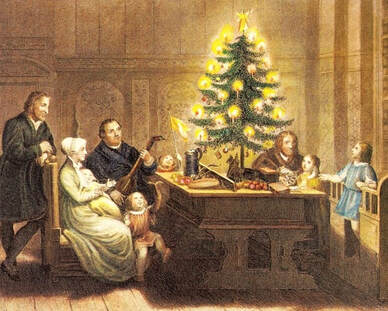
Dear Congregation
This will be a strange Christmas. It will be unlike anything that we have ever experienced- It is going to be a period with much anxiety, sadness and fear.
Philippians 4:6-7
Do not be anxious about anything, but in every situation, by prayer and petition, with thanksgiving, present your requests to God. And the peace of God, which transcends all understanding, will guard your hearts and your minds in Christ Jesus.
As we celebrate Christmas this week let us reflect upon the coming of Christ. That first Christmas was also a time of anxiety and fear. The first Christmas was in poverty and isolation too where the saviour and king of kings had to be ‘placed him in a manger, because there was no guest room available for them’ (Luke 2:7b).
This Christmas why not spend some time thinking upon that first Christmas and reflect on the words of the angels to the shepherds ‘Do not be afraid. I bring you good news that will cause great joy for all the people’ (Luke 2:10).
During this Christmas season we will have our challenges and stresses but as our scripture above says now is the time, we need to put our trust in Christ and hand everything over to the protection and care of Almighty God.
On Christmas Day we have a zoom service at 9am and an in-person service at 10am. We hope that you have a Blessed Christmas and a Happy New Year.
Pastor Mark
This will be a strange Christmas. It will be unlike anything that we have ever experienced- It is going to be a period with much anxiety, sadness and fear.
Philippians 4:6-7
Do not be anxious about anything, but in every situation, by prayer and petition, with thanksgiving, present your requests to God. And the peace of God, which transcends all understanding, will guard your hearts and your minds in Christ Jesus.
As we celebrate Christmas this week let us reflect upon the coming of Christ. That first Christmas was also a time of anxiety and fear. The first Christmas was in poverty and isolation too where the saviour and king of kings had to be ‘placed him in a manger, because there was no guest room available for them’ (Luke 2:7b).
This Christmas why not spend some time thinking upon that first Christmas and reflect on the words of the angels to the shepherds ‘Do not be afraid. I bring you good news that will cause great joy for all the people’ (Luke 2:10).
During this Christmas season we will have our challenges and stresses but as our scripture above says now is the time, we need to put our trust in Christ and hand everything over to the protection and care of Almighty God.
On Christmas Day we have a zoom service at 9am and an in-person service at 10am. We hope that you have a Blessed Christmas and a Happy New Year.
Pastor Mark
Details
Authors
Pastor Mark- Pastor of the LCiGB
Pastor Joseph- Minister of St Luke's
Archives
January 2023
December 2022
October 2022
July 2022
May 2022
March 2022
February 2022
April 2021
March 2021
December 2020
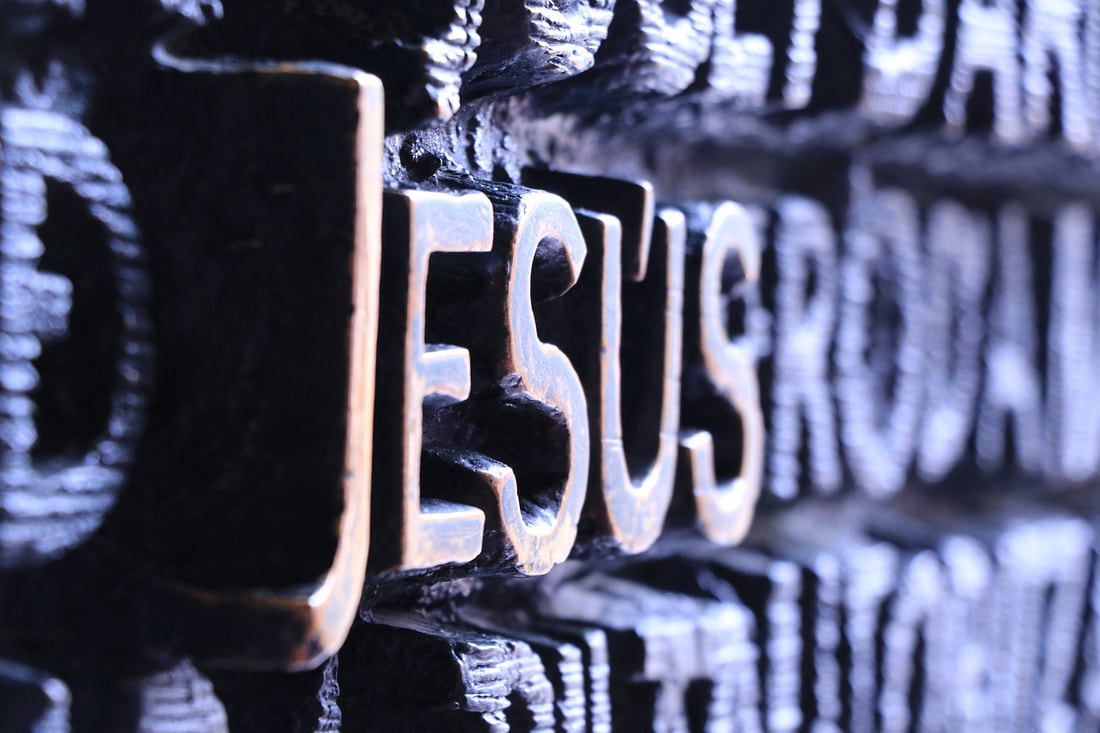
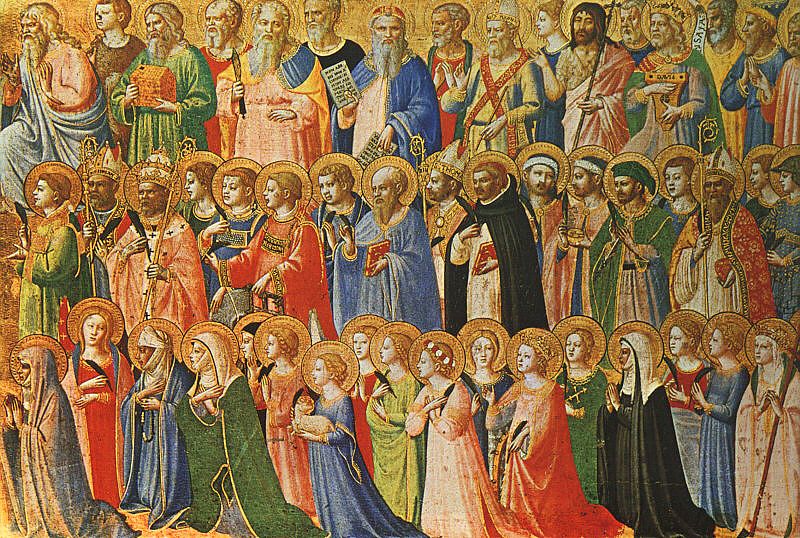
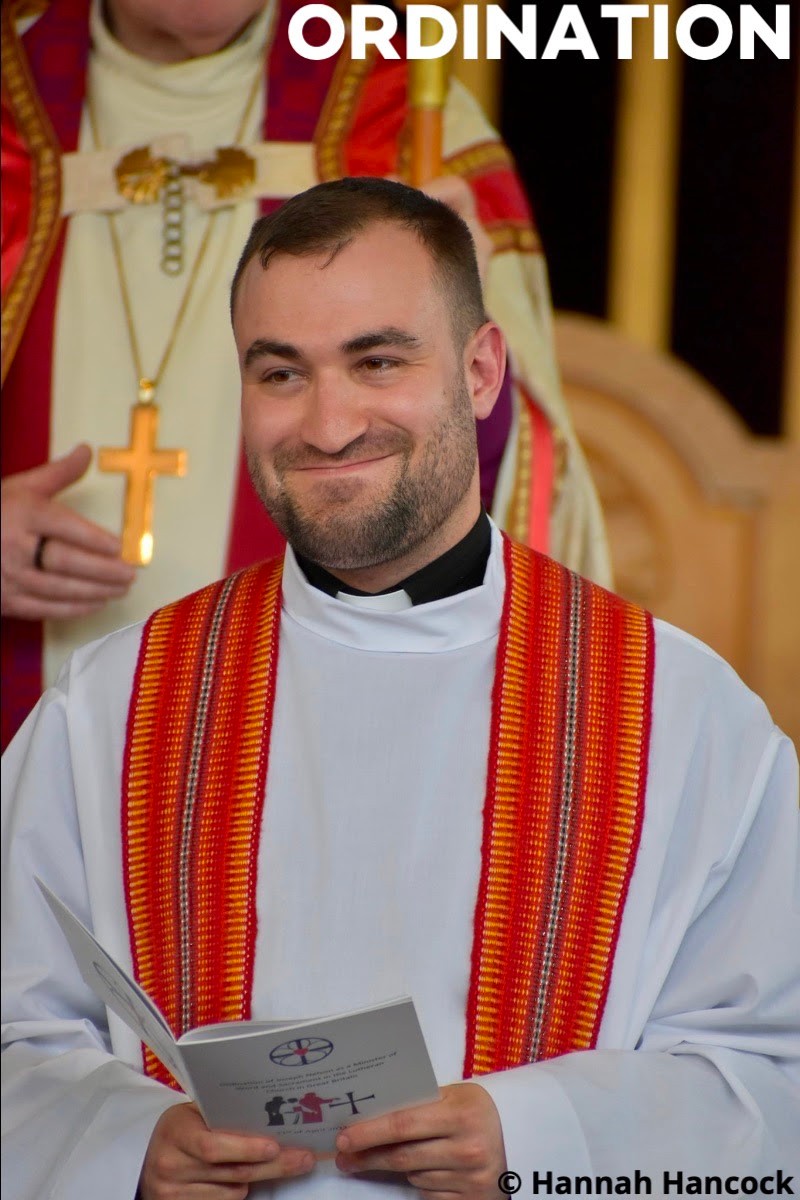
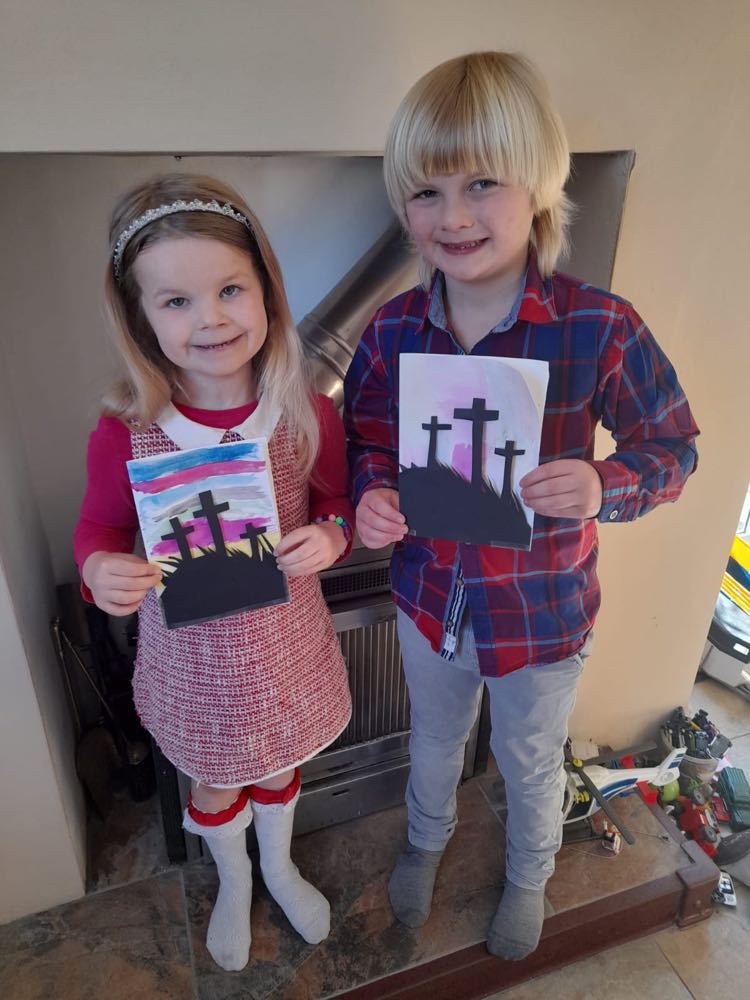
 RSS Feed
RSS Feed
